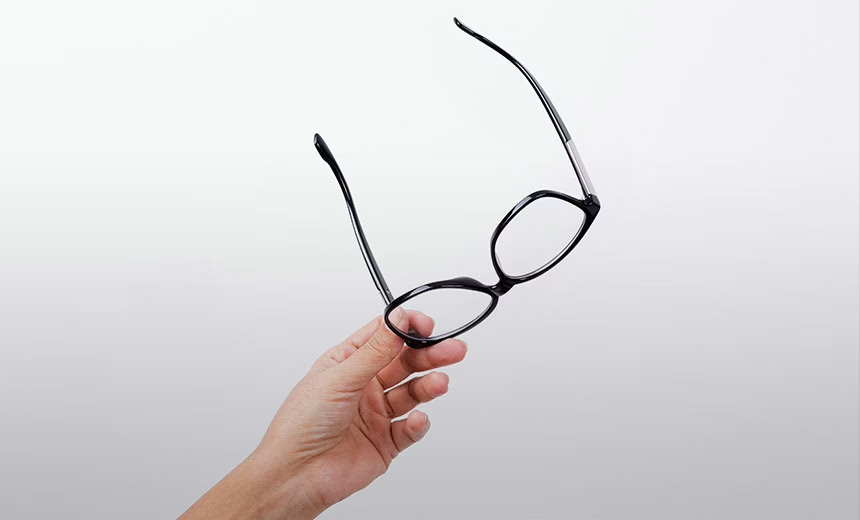"*" indicates required fields
Do I still need glasses or contacts after laser eye surgery?

If you have to rely on glasses or contact lenses for clear vision, you’ve probably wondered if laser eye surgery can really set you free from these visual aids. Perhaps you’ve heard success stories from some people, while you know others who still wear glasses despite having the surgery.
So, what’s the real truth?
Most people CAN get rid of their glasses after having laser eye surgery
For the majority of people, laser eye surgery corrects their distance (far) vision to match or better what it is with glasses. During an eye test after the procedure, most patients can expect to read as well as they do with their best-possible pair of glasses or contacts.
However, the likelihood that you’ll be completely free from glasses or contacts after the surgery depends on a few important factors:
- Your prescription strength and type of refractive error (e.g. short-sightedness, long-sightedness or astigmatism)
- Your surgeon’s experience and available laser technology
- Your age
1. Some people with a high prescription may still need glasses/contacts afterwards
The most common reason for out-of-focus, blurry vision is a mismatch between the power of your cornea and the length of your eye (see also How the eye works). During laser eye surgery, a cool-temperature laser is used to remove a precise amount of tissue to make the cornea the correct shape for the rest of your eye, resulting in clear, crisp vision.
One of the key eligibility criteria for laser eye surgery is that your glasses prescription has not changed for at least 12 months. A stable prescription means your vision is unlikely to deteriorate after surgery because of further changes to your eye.
People with weaker prescriptions (lower refractive errors) usually stabilise in their late teens or early 20s, making them good candidates for laser eye surgery. On the other hand, people with much poorer eyesight (i.e. higher refractive errors) tend to find that, although their prescription doesn’t change as often during their 20s, it may not stabilise completely.
Occasionally, a person may experience progression (where the improvement in eyesight following laser eye surgery lessens over time). This is not due to the laser effect wearing off – those changes are permanent – but rather to further lengthening of your eye or changes to your eye’s lens. These changes are more likely if you had very poor eyesight to begin with. If bothersome, this change may be corrected with an enhancement procedure or, if you are over 50, with a lens-based procedure.
In our practice, 98% of people get their expected result first time around.
Only a small number need an enhancement procedure to fine-tune the result.
2. Choose a reputable clinic that offers all types of vision correction procedures, not just laser eye surgery
An experienced surgeon will conduct rigorous testing and eligibility screening to ensure that you are a good candidate for laser eye surgery. They will recommend the most appropriate type of laser eye surgery for your eyes and your particular lifestyle (whether that be LASIK, SMILE® or ASLA), and have a comprehensive discussion about what to expect, the benefits and risks of surgery, and the costs of laser eye surgery.
If you don’t qualify for laser eye surgery, your surgeon can often recommend a different type of vision correction procedure (e.g. refractive lens exchange, implantable contact lenses). That’s why it’s important to ask if the clinic offers more than just laser eye surgery.
Unfortunately, surgical vision correction may not be an option at all for certain people.
3. Laser eye surgery doesn’t protect your eyes from the effects of ageing
People who have had laser eye surgery at a younger age may find their vision changing when they hit their early to mid-40s. It’s important to note that this is not because the laser eye surgery is ‘wearing off’.
Rather, it’s due to age-related loss of your ability to zoom in on close objects (presbyopia). This is where the eye’s lens, which is normally soft and flexible, starts to become stiff and rigid and reduces your ability to focus on near objects (e.g. for reading).
In other words, people who have had laser eye surgery early on often find that they require reading glasses as they enter their 40s.
The good news is that presbyopia can be effectively managed (e.g. with blended vision/monovision or refractive lens exchange), but your surgeon should make you aware of this condition before you proceed.
Be realistic
Keep in mind that the results of laser eye surgery depend on the individual patient and the various factors that I’ve described above.
If you are under 40, you can generally expect to say goodbye to your glasses or contact lenses. If you’re over 40, your surgeon will have a detailed discussion with you that includes managing presbyopia.
During your laser eye surgery consultation, your surgeon will explain whether laser eye surgery is right for you, the potential benefits and risks, and what is achievable in your particular situation. This is the time to ask as many questions as possible and be honest about what you want so that you can set realistic goals with your surgeon.
SMILE® is a registered trademark of Carl Zeiss Meditec
References
- Choice. A guide to laser eye surgery. NSW, 11 August 2020. Available at https://www.choice.com.au/health-and-body/optical-and-hearing/optical/articles/guide-to-laser-eye-surgery [Accessed 6 January 2021].
- Wilkinson JM, Cozine EW, Kahn AR. Refractive Eye Surgery: Helping Patients Make Informed Decisions About LASIK. Am Fam Physician 2017;95(10):637–44.
- Chan C, Lawless M, Sutton G, Versace P, Hodge C. Small incision lenticule extraction (SMILE) in 2015. Clin Exp Optom 2016;99(3):204–12.
- American Academy of Ophthalmology. What Is Photorefractive Keratectomy (PRK)? USA, 27 September 2017. Available at https://www.aao.org/eye-health/treatments/photorefractive-keratectomy-prk [Accessed 6 January 2021].
Enjoyed this article?
More articles by this author
A/Prof Michael LawlessMore articles on this subject
Laser eye surgeryThe information on this page is general in nature. All medical and surgical procedures have potential benefits and risks. Consult your ophthalmologist for specific medical advice.
Date last reviewed: 2025-05-20 | Date for next review: 2027-05-20

